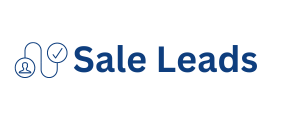Although they already seem very old news – that is the effect that the intense beginning of the year has had on the news news – the judicial crises of Facebook and the other giants of the network are not such old news. Facebook has been accused of monopoly in a judicial maneuver that Netherlands Mobile Database involves most of the US states, which portends complex problems for this year and the immediate future that lies ahead. But in addition to that is added an accusation launched by a group of attorneys general against Google. It has not achieved as much consensus as the attack on Facebook – in this case ten states are behind the lawsuit – but it does start from the same base and becomes an equally clear sign that the authorities are increasingly focused on the dominant role of big tech.
The accusation indicates that Google is a monopoly and that it has used anticompetitive practices in the field of online advertising, controlling prices and reducing the power of maneuver of small players. In addition, and this is where Facebook has become a collateral guest in the process, the plaintiffs also accuse them of having closed an agreement with Facebook when it entered the advertising market, an agreement that goes against free trade and in the they used – so they say – their power as a dominant player. Of course, Google defended itself against these accusations at the time and the process is still in the early stages, but the documentation that is becoming the epicenter of the judicial process is serving to see from the inside how the online advertising market works and the role of the big ones.
The New York Times has had access to the documents on which the prosecution bases its criticism of the agreement between Facebook and Google. Facebook was going to compete directly with Google for part of the digital advertising market but backed down, staying in its own area of maneuver and Brother Cell Phone List not encroaching on the terrain where Google dominates. It did, the documents now say, because the two giants struck a preferential deal. Google eliminated a potential competitor and Facebook achieved very advantageous conditions when managing ads in Google tools. The data to which the Times has had access paints a very flattering image for Facebook, so much so that its competitors are already talking about unfair treatment for them. They do it, yes, from anonymity, because they do not want it to affect their relationship with Google.
What exactly are Google’s other partners criticizing about the deal data made public in the Times investigation ? For them, the deal gives Facebook a significant competitive advantage over them. In general, the terms of the agreement with Facebook are much better than those of the general agreements that Google closes with its advertising partners. Thus, Facebook made sure thanks to the agreement that it would win a predetermined percentage in all the bids in which it participated. The other players did not know that this happened and, according to the accusations in the lawsuit, Facebook always won, regardless of whether another player bid higher than them (as a Google spokeswoman explained to the Times this is not true: Facebook had have to beat the highest bids to win them).
It is not the only benefit. It also had better bid times (300 milliseconds versus 160 or less for everyone else) and advantageous data terms. Facebook could directly bill the sites where its ads appeared, giving it access to pricing data (and taking it out of Google’s absolute control of pricing data), and it also had access to better data to understand. how the market works. According to the data collected by the Times , Google agreed with Facebook to help it better understand where ads should be displayed, something that does not happen with other partners.







